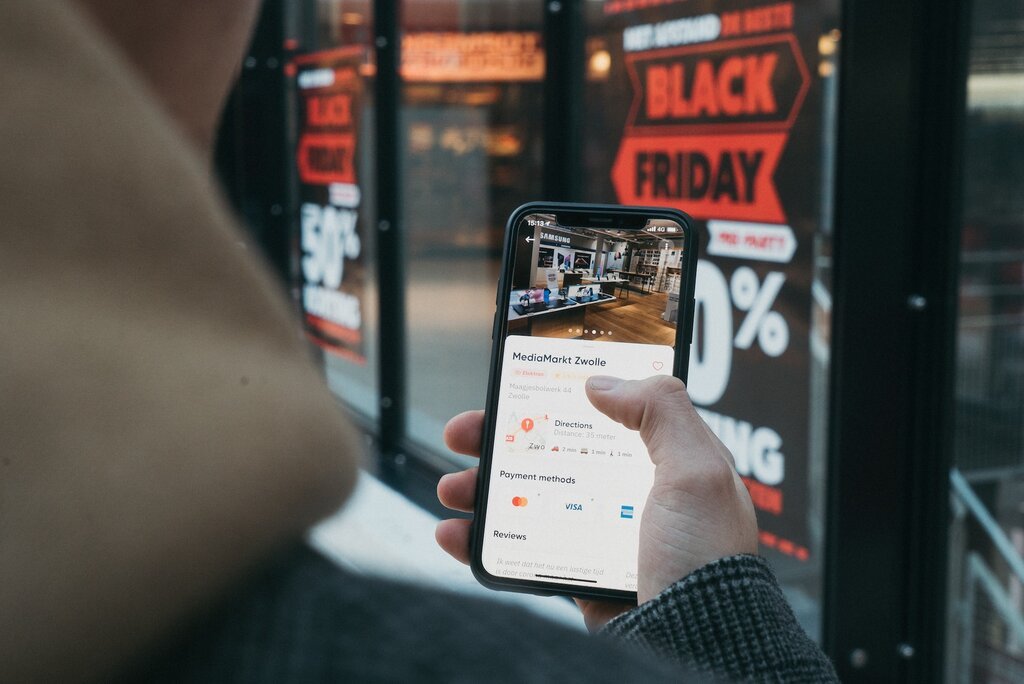
Black Friday Success Launches Cyber Monday
Share
Ask anyone what they think about the Thanksgiving holiday. While their answers will vary, most will include food and Black Friday. For millions of Americans, the day after Thanksgiving is the time to begin Christmas, Hanukkah, and Kwanza shopping.
Traditionally, Black Friday is one of the biggest and busiest shopping days of the year in the United States. As a result, retail outlets flood the internet yearly and airwaves with advertising weeks before the holiday weekend. In fact, due to this unofficial holiday's popularity, companies started to offer specials several weeks earlier.
Its success prompted the launch of additional post-Thanksgiving holiday shopping events, such as Small Business Saturday, Cyber Monday, and National Day of Giving on Tuesday.
Other countries started to adopt versions of Black Friday in the past decade. Dave Hamrick from JungleScout reported that in 2019 an estimated 50 to 60% of the world's 195 countries observed America's consumer holiday in some form or another.
But where or when did America's post-Thanksgiving shopping promotion begin?
Black Friday Origin
The unofficial holiday has several origin stories. Although many reputable sources say Black Friday started in 1869 when the U.S. gold market crashed: It was not the holiday shopping extravaganza's beginning, but it did coin the term.
An often-cited event is Macy's first Thanksgiving Day Parade in 1924. Some sources believe the parade in New York City established that the Friday after Thanksgiving officially kicked off the Christmas shopping season. However, Macy's was not the first parade in the United States featuring Santa Claus encouraging parents to buy gifts.
The most plausible origin story comes from Philadelphia. During the 1960s, the police complained about the large crowds in town for the annual Army-Navy football game. So, according to historians, tourists would flock to the city to shop on Friday before the Saturday game.
These dreaded crowds caused the police to work long hours while dealing with bad weather, traffic, and mob-related mayhem. As a result, officers began to call the day Black Friday.
Merchants felt the negative connotation of the word black used in front of the week, so they tried to rename the post-Thanksgiving shopping event to Big Friday. Historically, the stock market's crashes were identified as black days, such as Black Tuesday in 1929 and Black Monday in 1987.
However, by the late 1980s, companies embraced Black Friday, but they reinvented its backstory. They declared that the profits from that day's sale moved their ledgers from negative or red to positive or black.
Cyber Monday Origin

Courtesy of Benyafez Studio (Unsplash)
The National Retail Federation (NRF) first used the term Cyber Monday in 2005. According to their website, retailers needed a name to promote an online version of Black Friday in brick-and-mortar stores.
At the time, the NRF credited faster internet connections and online merchants' desire to attract holiday shoppers as their reason for launching the first Cyber Monday. People were more than happy to buy online rather than wait in line for the Black Friday sales to begin.
By 2010 Cyber Monday first hit $1 billion in online sales. News outlets declared that Black Friday and Cyber Monday merged into one long shopping weekend the following year. Online sales topped $6 billion in digital spending in 2018 and $9.81 billion in 2020.
Simpleaf's Cyber Monday offers consumers an environmentally safe multi-purpose cleaner and scented and unscented personal wipes. Check out Simpleaf's new product bundles.
Written by Cathy Milne-Ware

